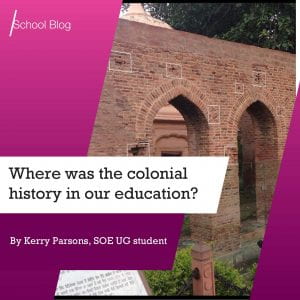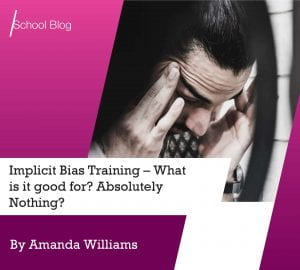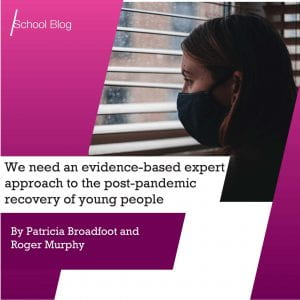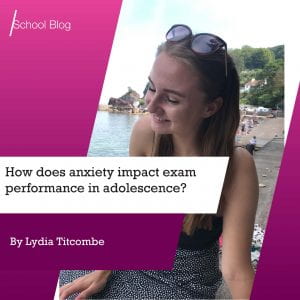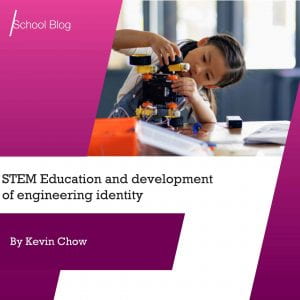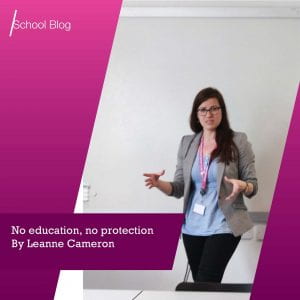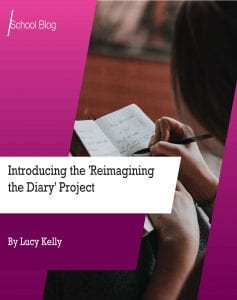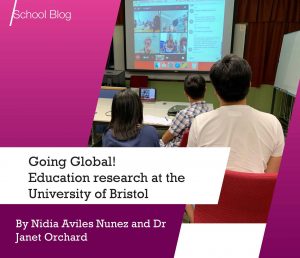 Blog post by Nidia Aviles Nunez, PG, Education, School of Education, University of Bristol and Dr Janet Orchard, School of Education, University of Bristol
Blog post by Nidia Aviles Nunez, PG, Education, School of Education, University of Bristol and Dr Janet Orchard, School of Education, University of Bristol
There have been so many low points to life in a pandemic over the past year, we were keen to share one positive opportunity we have enjoyed from engaging in online video conversations with people on the other side of the world. We have been involved in a dialogue between teachers and teacher educators based in Bristol and in Hong Kong called ‘Going Global’, building on an earlier round of dialogues pre-pandemic also including pre-service teachers from Stellenbosch, South Africa. (more…)

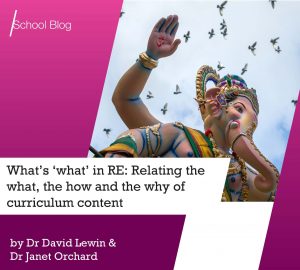 Blog post by
Blog post by 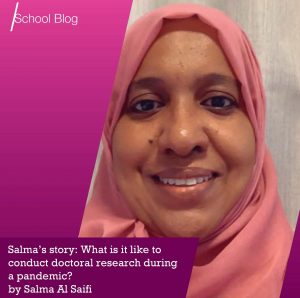 Blog post by Salma Al Saifi, doctoral researcher at the School of Education, University of Bristol
Blog post by Salma Al Saifi, doctoral researcher at the School of Education, University of Bristol